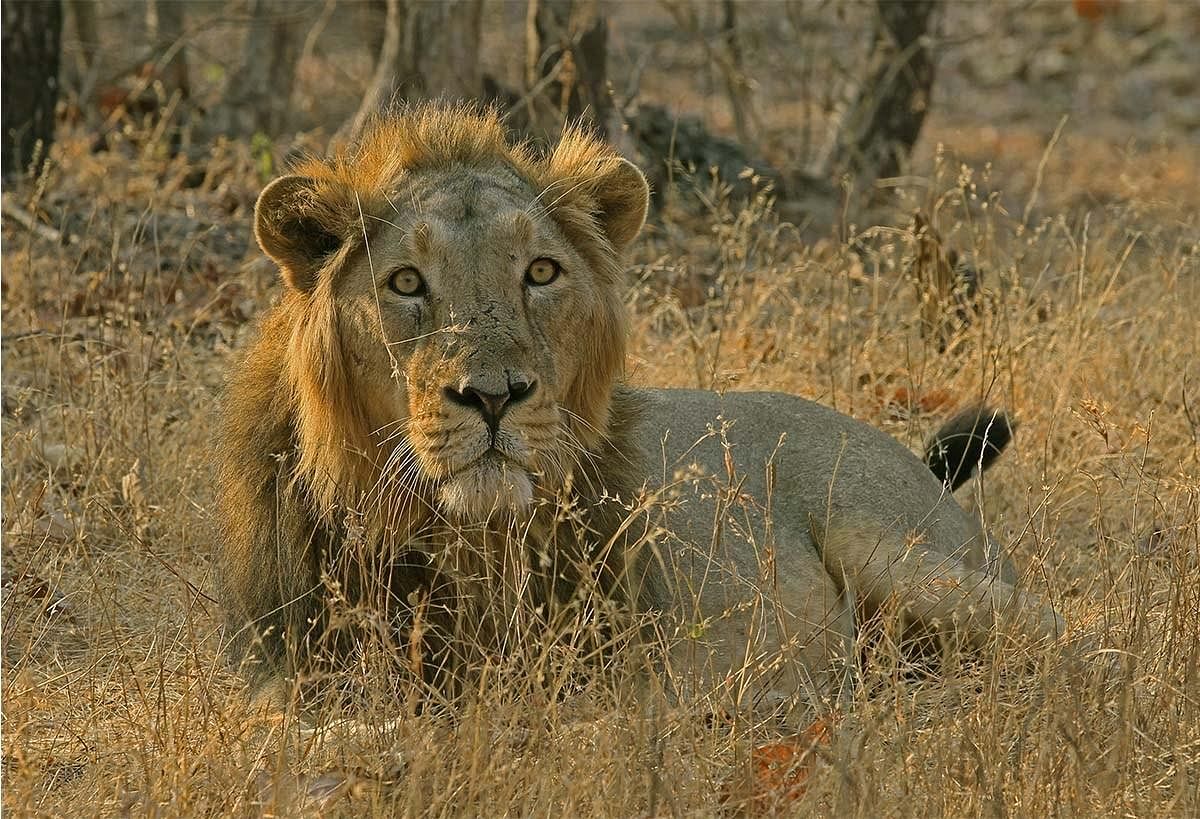The death of as many as 23 lions in a span of three weeks in the Gir forest national park, which is the only home of Asiatic lions, is a matter of serious concern. The park authorities first made a wrong and misleading statement that the deaths were caused by “infighting’’ among lion prides. But the theory fell through when it was found that female lions were also among the dead and all deaths happened in a particular area of the habitat. Female lions are spared in fights that break out among males, and there is no reason why they should happen only in one area. It has now been established that the deaths were caused by an infection, which is a combination of a canine distemper virus (CDV) and a protozoal infection. A vaccine has been imported from the US and some experts have been invited from the UK for consultation. All the lions in the affected area have been tranquilised and shifted to rescue centres.
The lions are believed to have got the infection from cattle, dogs and other domestic animals with which they share territory on the periphery of the park. The lion prides have often strayed out of the park into the adjoining districts and even into human settlements near Junagarh city. This is mainly because the Gir forest area is now overcrowded. It was good news that the lion population increased by 120 in the last three years, but the death rate increased from the normal 60 per year to 90. Deaths were also caused by speeding trucks and trains and live wires. It is estimated that Gir can support only about 300 lions but there are at least 525 of them living there. This poses many problems to the animals.
There has been a proposal since at least 2007 to shift some lions to the Kuno national park in Madhya Pradesh, which is also part of the Kathiawar-Gir dry deciduous ecoregion and is considered to be an ideal habitat for them. When the Gujarat government under then chief minister Narendra Modi refused to let go of the lions, the Supreme Court directed translocation of some of them in 2013. But the Gujarat government considers Gir lions to be the pride of that state alone and has not allowed the lions to be moved till date. The animals are very vulnerable to infections and epidemics if they are all in one place. Their immunity gets diminished because of inbreeding. Keeping them in one place is also against the international norms of wildlife conservation. So, the translocation proposal should be pursued seriously and implemented, lest a sudden calamity befall the entire lion population in Gir.
